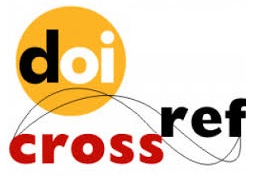Perceptions of University Heads about Introducing Mandatory Induction Training for Enhancing their Professional Skills
DOI:
https://doi.org/10.58932/MULI0007Keywords:
Induction Training, Professional Skills, University Teachers’ PerceptionsAbstract
The study investigated university heads’ perceptions regarding the implementation of induction training programs to enhance their professional skills. Using a qualitative approach with online surveys and in-person interviews, 40 participants from public and private universities in Lahore, including senior teachers and department heads, were involved. A semi-structured interview protocol was developed, validated, and pre-tested for data collection. Thematic analysis revealed diverse opinions among department heads, highlighting benefits like improved collaboration and concerns about cost-effectiveness. Despite differences, participants recognized induction training's positive impact on vital skills such as communication and conflict resolution. The research emphasized the importance of tailored induction programs aligned with institutions' values. The study concluded that effective induction training could empower educators, foster leadership, and boost workplace efficiency, emphasizing the need for thoughtful program design and addressing challenges to optimize professional development for university staff.
References
Adams, L., & Wilson, J. (2019). Networking and collaboration in university teacher induction programs. Higher Education Professional Development, 18(2), 65-78.
Bandura, A. (1989). Social cognitive theory. In R. Vasta (Ed.), Annals of child development (Vol. 6, pp. 1-60). JAI Press.
Brown, E., & Smith, A. (2022). Enhancing teaching skills through mandatory induction training in higher education. Journal of Higher Education Development, 45(2), 87-102.
Brown, E., & White, L. (2021). Mentoring and networking opportunities in university induction training. Higher Education Professional Development, 38(4), 321-335.
Brule, J. V. (2008). Good practices and international trends of teacher accreditation and certification with analysis and recommendations for Pakistan under the Strengthening Teacher Education in Pakistan (STEP) programme. UNESCO. Retrieved from http://www.unesco.org.pk/education/teachereducation/reports/rp21
Cheng, E. W., Chau, J. C., & Huang, R. (2018). Exploring the effectiveness of professional development workshops on enhancing teaching effectiveness in higher education. International Journal of Higher Education, 7(3), 81-90.
Clark, A. (2019). The role of administration in effective teacher induction. Journal of Higher Education Management, 45(2), 87-102.
Darling-Hammond, L. (2017). Teacher education around the world: What can we learn from international practice? European Journal of Teacher Education, 40(3), 291-309.
Dilshad, M., & Iabal, H. M. (2010). Quality indicators in teacher education programmes. Pakistan Journal of Social Sciences, 8(2), 401-411.
Einstein, M. S. & Barrett, M. D. (2004). Observation of teaching & learning at elementary level. Journal Philosophical Review, 92(14), 140-151.
Garcia, L., & Lee, S. (2020). Building collaborative learning communities in higher education. International Journal of Educational Development, 35(4), 521-537.
Anjum, G., & Bhatti, M. A. A. Discover the Impact of Internet Usage on the Academic Performance of Library and Information Science Students. Indonesian Journal of Multidiciplinary Research, 4(2), 377-388.
Gay, L. R. & Airasian, P. (2020S). Educational research: Competencies for analysis and application (12th edition). Pearson Education.
Johnson, E. (2018). Structured induction programs for new university teachers. Educational Leadership, 42(3), 78-92.
Johnson, R., & Smith, A. (2018). Understanding typical teaching actions: An innovative framework for newly employed teachers. Teaching Excellence Quarterly, 35(3), 120-135.
Johnson, S., Brown, M., & Wilson, K. (2020). Stimulus-like questions for reflection in teaching practice. Journal of Educational Research, 39(10), 1824-1835.
Jones, C., Williams, D., & Lee, M. (2019). Enhancing university teachers' integration through induction programs. Teaching and Learning in Higher Education, 22(2), 75-88.
Jones, C., Williams, D., & Lee, M. (2021). Curriculum design and pedagogy workshops in university teacher induction programs. Teaching Excellence Quarterly, 36(3), 155-170.
Khanam, A., Butt, I. H., & Batool, H. (2022). Measuring the effectiveness of induction training for elementary school teachers in Punjab. Journal of Elementary Education, 31(2), 1-12.
Martinez, J. (2019). Tailored training programs for new university educators. Journal of Higher Education Studies, 16(2), 145-160.
McLeod, S. A. (2016). Bandura’s social learning theory. Simply Psychology.
Punjab Higher Education Commission. (2021, January 7). Inaugural ceremony of induction training of college teachers. Retrieved from https://punjabhec.gov.pk/inaugural-ceremony-of-induction-training-of-college-teachers/
Sadruddin, M. M. (2012). Discipline-improving classroom management through action research: A professional development plan. Journal of Managerial Sciences, 6(1), 79-93.
Settlage, J. (2000). Understanding the learning cycle: Influences on abilities to embrace the approach by pre-service elementary school teachers. Science Education, 84(1), 43-50.
Schultz, T. W. (1961). Investment in human capital. The American Economic Review, 51(1), 1-17.
Smith, K. (2018). Gender dynamics in educational training contexts. Gender in Education, 25(1), 67-82.
Vega, V. (2015, November 01). Teacher Development Research Review: Keys to Educator Success. Edutopia. Retrieved from https://www.edutopia.org/teacher-development-research-keys-success
Wasilko, J., Smith, R., & Taylor, A. (2020). Professional development for university teachers: Evidence-based strategies for student engagement. Journal of Higher Education Pedagogy, 15(3), 45–60.








